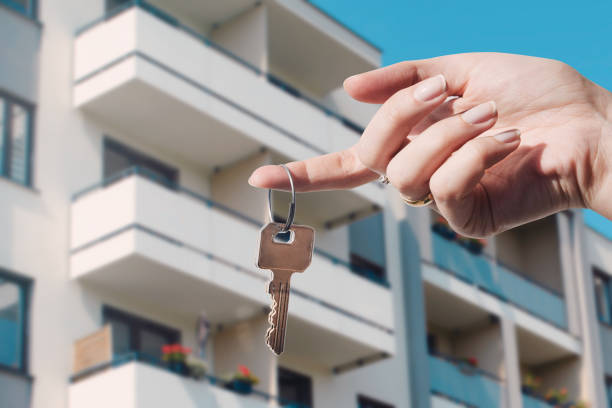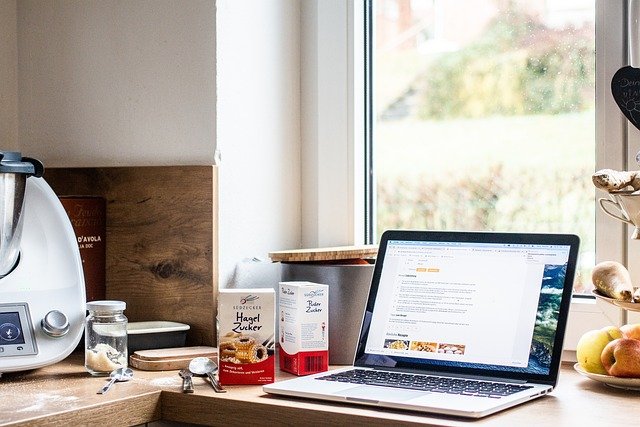How Renters in Germany Are Unlocking Extra Benefits and Rent Savings
Renting an apartment in Germany doesn’t have to mean missing out on valuable perks. Many renters are discovering ways to secure free gym access, apartment upgrades, and significant rent savings — all without paying more. Knowing where to look and how to negotiate can turn a standard rental into a smarter, more rewarding living experience. Explore the strategies that can help renters get more for their money.

Understanding Your Rental Market: Where Perks and Savings Are Available
The German rental landscape varies dramatically from city to city, with each market offering different opportunities for tenant benefits. In high-demand areas like Munich, Berlin, and Hamburg, landlords might seem to hold all the cards, but even these competitive markets have pockets of opportunity. For example, in Berlin’s outer districts like Marzahn or Spandau, property managers often include amenities like basement storage units, bicycle parking, or community gardens to attract reliable tenants.
In smaller cities and rural areas, the advantage often shifts to renters. Towns like Cottbus, Chemnitz, and parts of eastern Germany with lower demand frequently offer significant incentives such as rent-free periods (mietfreie Zeit), renovated bathrooms, or new kitchen appliances to secure quality tenants. Understanding these regional differences allows renters to target areas where they’ll have stronger negotiating positions.
Market timing also plays a crucial role in benefit availability. Winter months (particularly November through January) typically see fewer people moving, creating seasonal opportunities for negotiation. Properties that have been vacant for more than two months often come with increased flexibility from landlords eager to secure occupancy.
Negotiation Tips to Maximize Benefits Without Increasing Rent
Successful negotiation begins with proper preparation. Before viewing apartments, research the local Mietspiegel (rent index) to understand fair rental rates in your target neighborhood. This official document, available in most German cities, provides authorized rent ranges based on location, size, and amenities. Armed with this information, you can confidently discuss pricing if a landlord’s offer exceeds local standards.
When negotiating, focus on non-monetary benefits that cost landlords relatively little but provide significant value to you. For example:
-
Requesting inclusion of previously separate utility costs in the base rent
-
Negotiating for new appliances or fixtures before moving in
-
Securing permission for reasonable property modifications
-
Extending the standard notice period for additional security
Documentation is essential during negotiations. Get all agreed-upon benefits in writing within your rental contract (Mietvertrag). In Germany, verbal agreements can be legally binding, but written terms provide clear evidence of what was promised. Request specific language about any renovations, included services, or special arrangements to avoid future misunderstandings.
The approach matters significantly: adopt a collaborative rather than confrontational tone. Frame requests as mutual benefits—for instance, offering a longer-term commitment in exchange for a freshly painted apartment or updated fixtures. Many landlords value reliable, long-term tenants over maximizing short-term rental income.
How to Identify Apartments Offering Extra Value in Germany
Certain property features indicate higher potential for added benefits. Apartments managed by housing associations (Wohnungsgenossenschaften) often include amenities like community rooms, shared gardens, and maintenance services as part of their cooperative structure. These organizations typically prioritize tenant satisfaction over profit maximization.
Corporate-owned apartment complexes frequently offer standardized perks to maintain competitive positioning. Look for buildings advertising “all-inclusive” packages that may cover internet service, basic cable TV, or building amenities like fitness rooms or rooftop terraces. Companies like Vonovia, Deutsche Wohnen, and LEG Immobilien sometimes run promotional offers for new tenants, including moving allowances or temporary rent reductions.
Newly constructed buildings (Neubau) often come with modern energy-efficiency features that significantly reduce heating costs. While base rent might be higher, the total cost of occupation can be lower due to reduced energy consumption. Additionally, new developments frequently include amenities like elevator access, balconies, or community spaces that would be premium add-ons in older buildings.
Digital tools can help identify value-rich opportunities. Rental platforms like Immobilienscout24 and Immowelt allow filtering for specific amenities, while specialized sites like Wunderflats highlight apartments with inclusive packages. Some property management companies maintain waiting lists for their most desirable properties—registering early can provide access to premium units before they reach the open market.
Rental Cost Insights and Value Comparison in German Cities
Understanding the relationship between rent costs and included benefits is essential for maximizing value. The variation in what’s included in standard rentals differs dramatically across German cities and property types.
| City | Average Monthly Rent (70m² apt) | Typical Included Benefits | Potential Negotiable Extras |
|---|---|---|---|
| Berlin | €850-1,100 | Water, building maintenance | Internet service, storage space, bicycle parking |
| Munich | €1,300-1,600 | Basic utilities, caretaker service | Renovations allowance, reduced deposit terms |
| Hamburg | €950-1,200 | Water, trash collection | Kitchen equipment, community garden access |
| Frankfurt | €1,000-1,300 | Building insurance, stairwell cleaning | Public transport subsidy, fitness room access |
| Leipzig | €600-800 | Water, building maintenance | Free renovation period, updated appliances |
| Dresden | €550-750 | Basic utilities, communal spaces | Rent reduction for long-term contracts, storage units |
Prices, rates, or cost estimates mentioned in this article are based on the latest available information but may change over time. Independent research is advised before making financial decisions.
Many renters find significant value in properties that include heating costs (Warmmiete) versus those quoting cold rent (Kaltmiete). The difference can range from €100-250 monthly depending on the building’s energy efficiency, making apparently expensive inclusive rentals potentially more economical overall than their lower-priced counterparts with separate heating bills.
Leveraging Tenant Rights for Additional Benefits
Germany’s strong tenant protection laws provide additional avenues for securing benefits. For instance, the Mietpreisbremse (rent brake) legislation limits how much landlords can charge above the local average in designated areas. If you discover your rent exceeds these limits, you may be entitled to a reduction—even after signing the contract.
Renters can also request reimbursement for self-performed necessary repairs or improvements if landlords fail to address issues promptly. This right, combined with the ability to reduce rent (Mietminderung) during periods of significant disruption or deficiency, creates incentives for landlords to maintain quality living conditions and respond to reasonable tenant requests.
Tenant associations (Mietervereine) offer invaluable support in understanding and exercising these rights. For a modest annual fee (typically €50-90), members receive legal consultation and representation in rental disputes. Many successful renters report that mentioning their Mieterverein membership during negotiations results in more favorable terms, as landlords prefer avoiding potential legal complications.
By understanding the market, recognizing value opportunities, and leveraging legal protections, renters in Germany can transform standard rental agreements into beneficial living arrangements that provide substantial comfort and financial advantages without increasing costs.




